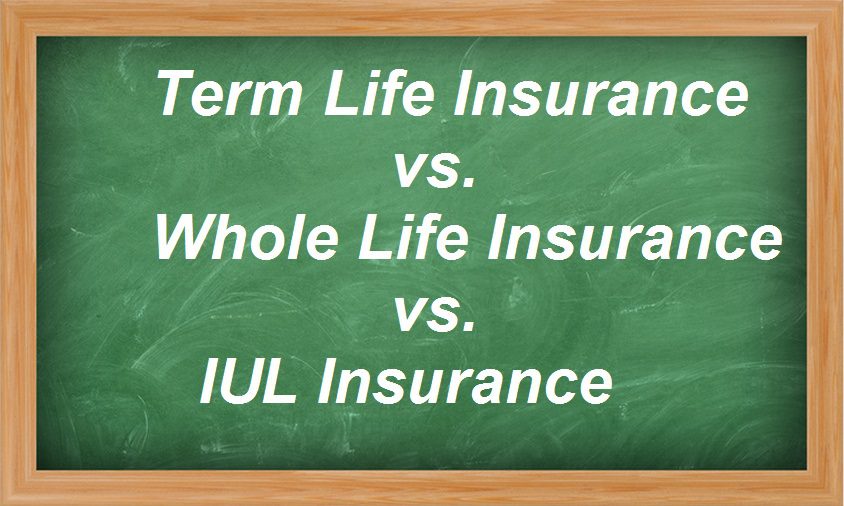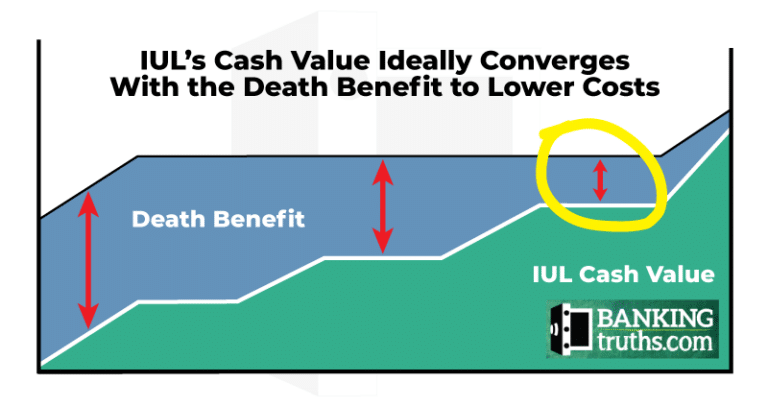All Categories
Featured
Table of Contents
Do they contrast the IUL to something like the Lead Overall Stock Market Fund Admiral Shares with no lots, a cost proportion (EMERGENCY ROOM) of 5 basis factors, a turn over ratio of 4.3%, and an outstanding tax-efficient document of distributions? No, they contrast it to some dreadful proactively managed fund with an 8% lots, a 2% EMERGENCY ROOM, an 80% turn over proportion, and a dreadful record of short-term resources gain distributions.
Mutual funds usually make annual taxed circulations to fund proprietors, also when the value of their fund has decreased in worth. Mutual funds not just call for income coverage (and the resulting annual taxation) when the shared fund is increasing in value, but can likewise impose earnings tax obligations in a year when the fund has decreased in value.
That's not just how common funds work. You can tax-manage the fund, gathering losses and gains in order to minimize taxable circulations to the financiers, however that isn't somehow going to alter the reported return of the fund. Just Bernie Madoff kinds can do that. IULs stay clear of myriad tax obligation traps. The ownership of shared funds might require the mutual fund proprietor to pay estimated tax obligations.

IULs are easy to place so that, at the owner's death, the beneficiary is exempt to either earnings or inheritance tax. The very same tax reduction techniques do not function nearly as well with mutual funds. There are many, usually costly, tax traps associated with the timed trading of shared fund shares, traps that do not use to indexed life insurance policy.
Chances aren't extremely high that you're mosting likely to go through the AMT because of your common fund distributions if you aren't without them. The rest of this one is half-truths at best. While it is real that there is no income tax due to your successors when they acquire the profits of your IUL plan, it is also real that there is no earnings tax due to your successors when they acquire a shared fund in a taxed account from you.
Nationwide Yourlife Indexed Ul Accumulator
The government estate tax obligation exemption limit mores than $10 Million for a couple, and growing each year with inflation. It's a non-issue for the vast majority of doctors, a lot less the rest of America. There are far better means to stay clear of inheritance tax problems than purchasing financial investments with reduced returns. Mutual funds may create earnings tax of Social Safety advantages.

The growth within the IUL is tax-deferred and might be taken as free of tax earnings using fundings. The policy proprietor (vs. the common fund supervisor) is in control of his or her reportable income, therefore allowing them to minimize and even eliminate the taxation of their Social Safety and security advantages. This set is wonderful.
Below's an additional minimal concern. It's true if you purchase a shared fund for state $10 per share just before the distribution date, and it disperses a $0.50 distribution, you are after that mosting likely to owe taxes (probably 7-10 cents per share) although that you haven't yet had any type of gains.
Yet ultimately, it's really concerning the after-tax return, not exactly how much you pay in taxes. You are going to pay more in taxes by utilizing a taxed account than if you get life insurance. But you're additionally probably going to have even more money after paying those tax obligations. The record-keeping needs for having shared funds are dramatically extra complex.
With an IUL, one's documents are kept by the insurer, duplicates of yearly declarations are mailed to the owner, and circulations (if any kind of) are totaled and reported at year end. This is also kind of silly. Naturally you need to maintain your tax obligation records in situation of an audit.
What Is Difference Between Whole Life And Universal Life Insurance
All you need to do is shove the paper right into your tax obligation folder when it turns up in the mail. Barely a reason to purchase life insurance. It's like this person has actually never bought a taxable account or something. Mutual funds are typically component of a decedent's probated estate.
In addition, they go through the delays and expenses of probate. The proceeds of the IUL plan, on the various other hand, is always a non-probate distribution that passes beyond probate straight to one's named recipients, and is for that reason exempt to one's posthumous financial institutions, unwanted public disclosure, or comparable hold-ups and expenses.
Medicaid disqualification and life time earnings. An IUL can supply their proprietors with a stream of earnings for their entire life time, regardless of how lengthy they live.

This is valuable when arranging one's affairs, and converting assets to revenue prior to a nursing home arrest. Common funds can not be converted in a similar fashion, and are generally thought about countable Medicaid possessions. This is one more foolish one promoting that poor individuals (you understand, the ones who need Medicaid, a government program for the bad, to pay for their assisted living home) need to make use of IUL as opposed to mutual funds.
Best Iul Products
And life insurance policy looks dreadful when contrasted rather against a pension. Second, people that have cash to buy IUL above and beyond their retirement accounts are going to have to be dreadful at handling cash in order to ever before get approved for Medicaid to spend for their assisted living home costs.
Chronic and terminal health problem rider. All plans will permit an owner's very easy accessibility to cash from their plan, usually forgoing any type of abandonment penalties when such individuals endure a major health problem, need at-home care, or come to be restricted to an assisted living facility. Mutual funds do not provide a comparable waiver when contingent deferred sales costs still put on a mutual fund account whose proprietor requires to market some shares to fund the prices of such a keep.
Wrl Index Universal Life Insurance
Yet you reach pay more for that advantage (rider) with an insurance coverage. What a good deal! Indexed global life insurance provides survivor benefit to the recipients of the IUL proprietors, and neither the owner nor the beneficiary can ever before lose cash as a result of a down market. Common funds provide no such guarantees or survivor benefit of any kind of kind.
I certainly do not require one after I reach economic freedom. Do I want one? On standard, a purchaser of life insurance policy pays for the real price of the life insurance policy benefit, plus the expenses of the policy, plus the earnings of the insurance policy firm.
Difference Between Universal Life Insurance And Whole Life Insurance
I'm not completely sure why Mr. Morais tossed in the entire "you can't lose money" once again below as it was covered quite well in # 1. He simply intended to duplicate the best marketing factor for these things I expect. Again, you do not shed nominal dollars, but you can lose actual bucks, as well as face severe opportunity expense due to reduced returns.

An indexed global life insurance policy policy proprietor may trade their plan for a totally various plan without triggering revenue tax obligations. A shared fund owner can stagnate funds from one common fund company to an additional without selling his shares at the former (therefore triggering a taxed occasion), and buying new shares at the latter, frequently subject to sales charges at both.
While it holds true that you can exchange one insurance plan for another, the factor that people do this is that the first one is such a horrible plan that also after getting a brand-new one and experiencing the very early, unfavorable return years, you'll still come out in advance. If they were offered the appropriate plan the initial time, they should not have any desire to ever before exchange it and go via the early, adverse return years again.
Table of Contents
Latest Posts
Iul For Retirement Income
Best Iul Companies 2021
Iul Comparison
More
Latest Posts
Iul For Retirement Income
Best Iul Companies 2021
Iul Comparison